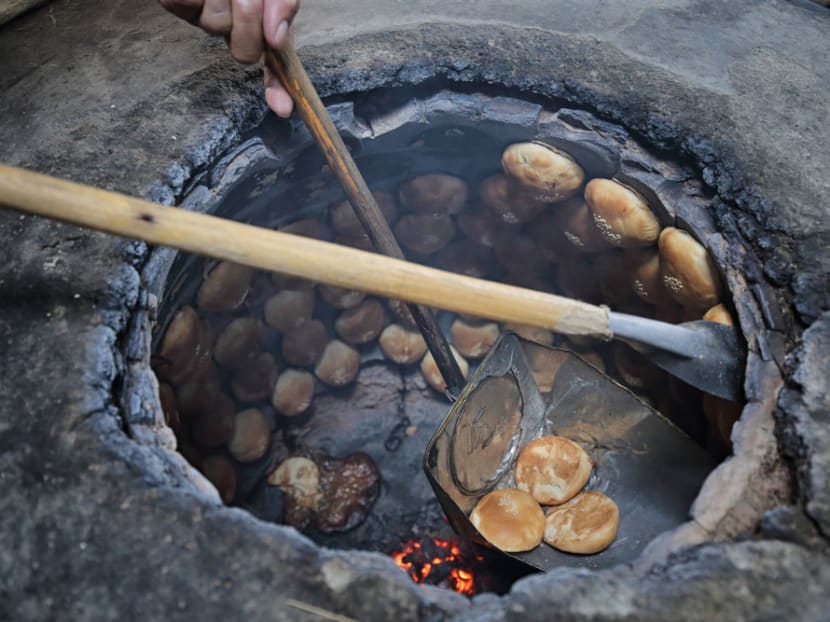Making 'heong peah' the traditional way in a kiln
IPOH (Malaysia) — You can find a number of heong peah (fragrant biscuits in Hokkien) makers in Gunung Rapat, but the biscuits from 362 Heong Peah are what people seem to crave for.
IPOH (Malaysia) — You can find a number of heong peah (fragrant biscuits in Hokkien) makers in Gunung Rapat, but the biscuits from 362 Heong Peah are what people seem to crave for.
Why, you ask? The answer is simple. 362 Heong Peah still makes the biscuits the traditional way in a small handmade kiln and instead of burning charcoal, they use coconut husks.
“Coconut husks give a savoury aroma to the biscuits and the oil that is produced through the burning of the coconut husks will stick to the biscuit, giving them a distinctive taste,” Mr Lew Yung Boon, the owner of 362 Heong Peah, told Malay Mail.
“Nowadays, most of the bakers here have shifted to electric ovens, but we insist on using the traditional method as this is the way customers prefer.
“The biscuits made in a traditional oven are crispier than the ones baked in electric ovens,” added the 44-year-old.
Unlike other bakers in the area, Mr Lew only makes one type of heong peah, which has the original sweet, malty, and caramel-like filling.
“We stick to the original filling as it is my family recipe. Of course other bakers in the area have improvised to include durian, coffee or strawberry flavours.
“Apart from heong peah, we also make tau sar piah and kaya puffs, but on a small scale,” he said.
The dough for the fragrant biscuit is made with two types of flour, water and oil while the filling is made with small onions (shallots), maltose, salt and a few other ingredients.
Once the dough has been shaped and flattened, they will be brushed with sugar syrup and sesame seeds will be sprinkled on top before they are baked.
Mr Lew, who started making the biscuits when he was 14, said that it took him one year to learn the skill.
“It is not easy to make the biscuit. It requires rolling and flattening skills using just your hands. But, if you can master this skill, then you will be able make other types of biscuits as well,” he said.
Apart from being skilful with his hands, Mr Lew also has a unique method of identifying and controlling the kiln temperature, which is by the hissing sound of the water sprinkled on the hot kiln.
It may sound weird, but Mr Lew knows what he is doing as every biscuit that comes out of the hot kiln is baked to perfection with a golden brown colour.
362 Heong Peah has four handmade kilns at the back of the house and each can bake about 150 biscuits at a time.
“We will bake around 1,000 biscuits every day. This biscuit can last for about one month as we don't add any preservatives.
“However, for those who eat the biscuits near the expiry date, we advise them to heat the biscuits in an oven for 10 to 20 seconds to get a crispy texture,” he added.
Mr Lew added that his customers come from as far as Hong Kong, Singapore and Indonesia.
When asked why he decided to have 362 as the brand name, Mr Lew said it represented the house number.
“Since there were a number of heong peah bakers in Gunung Rapat, each baker decided to brand their product using their house number. It will also make it easier for our customers to locate us,” he added.
A packet of heong peah goes for just RM9 (S$3). MALAY MAIL










